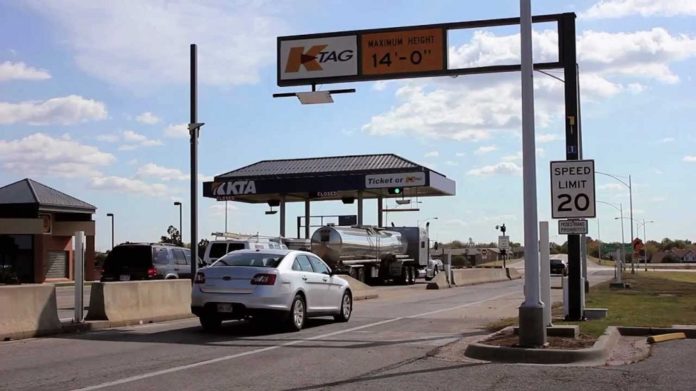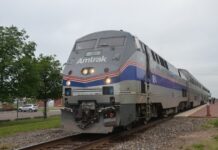Public transit could be funded with tolling revenue generated from new highway lanes built under a law enacted two years ago.
The House transportation committee is considering a bill that would revise a 2019 law that for the first time expanded tolling beyond the Kansas Turnpike.
The bill would authorize the transportation secretary to use toll revenues for public transit or other road improvements in the corridor where the project was constructed.
The bill only applies to new tolling projects built under the 2019 law. It does not apply to tolling revenue generated by the Kansas Turnpike.
The state is studying the possibility of adding a toll lane on a heavily congested part of U.S. 69 in Overland Park.
The lane could potentially employ tolling where the cost of using the new lane could fluctuate depending on the time of day and the level of traffic.
Transportation Secretary Julie Lorenz, however, told lawmakers she expected to propose changing the legislation so it would it have less of a transit focus.
The legislation was orginally drafted to allow the flexibility of putting more money into public transit so it would relieve traffic on the corridor where the new lane was being constructed.
Now, transportation planners want to rewrite the bill, which drew opposition from the trucking industry because it put money into public transportation.
Tom Whitaker, executive director of the Kansas Motor Carriers Association, said tolls should not be used to subsidize other forms of transportation.
“In some states, toll is a four-letter word in my industry,” Whitaker said. “Don’t make Kansas one of those states.”
The Transportation Department expects the section for funding public transportation to be removed from the bill.
It also expects that public transit vehicles will be allowed to use the new lane at a reduced rate.
Lorenz said the goal was always to give local governments building a new toll lane more options to choose from in planning these type of projects.
The 2019 law currently allows new tolling for projects that add capacity — such as an express lane — that did not previously exist.
Tolls would only be charged to drivers using the extra highway or bridge capacity. Money from the tolls also would be limited to paying for the road project they financed.
The expanded toll law was enacted in response to a recommendation made by the state’s transportation task force in 2018.
The task force recommended tolling as another way to pay for expanding highway capacity without relying on other more traditional funding sources, such as a gas tax or a sales tax.














